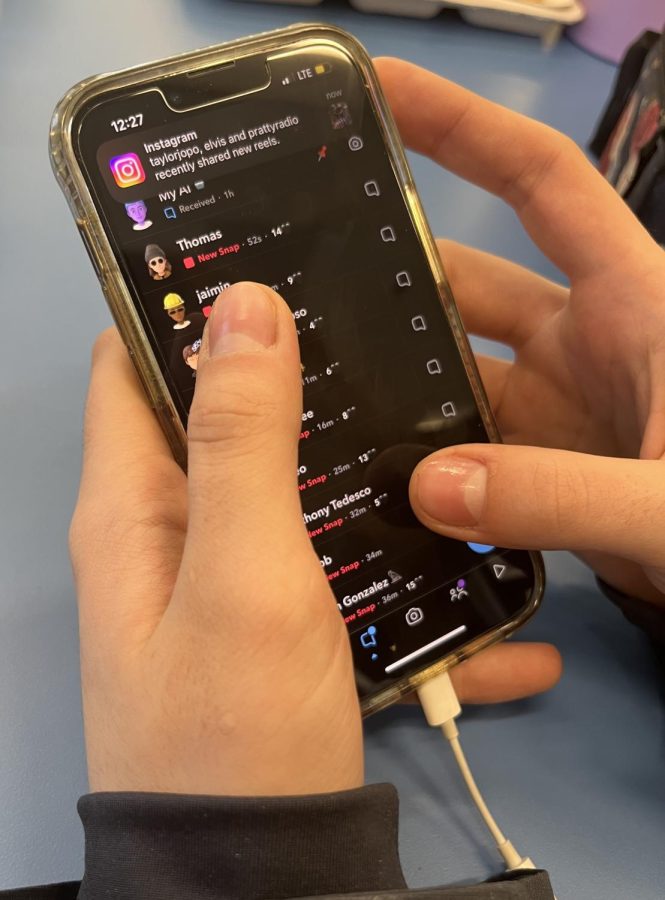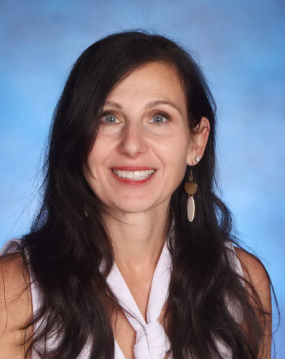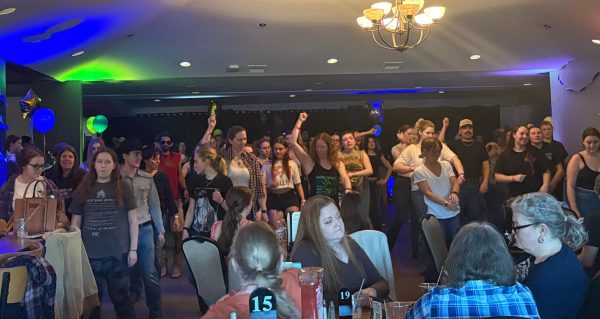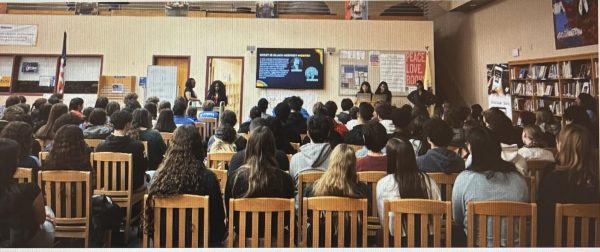Social Media Can Lead to Negative Mental Health
Humans are inherently social, thriving on social interactions to maintain healthy lives.
Many studies, however, have shown that there is a link between social media and mental health, and not in a positive way.
Even though social media is a relatively new technological development, it has been on a big rise the past 15 years. According to a study provided by Pew Research Center in 2021, 72% of the public uses social media. This number has only increased as more and more people turn to it.
When consumers use social media, oftentimes they are left with negative, provoking thoughts. Much of the problem is that we humans tend to compare ourselves to others all the time, whether it be through how many likes we have accumulated or how well we look compared to other people.
“The fear of missing out is a stressor – who is where and doing what,” said Health and Physical Education Teacher Laurie Kerr. “There is a lot of pressure to fit in.”
Kerr added that social media should only be used with people who are 18 years old and older.
Overall, many teachers around the country, through personal experience, have warned of feeling down and developing negative thoughts after using social media. They advise others – in particular their students – to find a healthy balance and put down the screen when needed.
According to HelpGuide.org, a popular nonprofit mental-health website, social media harbors an increased risk for users to experience depression, anxiety, and thoughts of self-harm and suicide. The website explains that although a social-media user sees only a small part of someone else’s life online, the experience can make the user feel insecure about his/her own life and can increase feelings of “envy and dissatisfaction.”
Warren Hills History and English Language Arts (ELA) Teacher Jesse O’Neill said, “What I really think we need to think about is self-discipline, self-confidence and a strong ability to recognize things that are unhelpful and unhealthy, and to walk away from them. Social media breeds a need for constant validation through views and likes.”
ELA Teacher Courtney Flowers shares a similar viewpoint, although she explains that oversight and regulation of potential social-media-related problems must start in the home.
“As parents, we wouldn’t just open the liquor cabinet and say to our kids, ‘Have at it!’” Flowers said. “The same goes for preventive education across the board – alcohol, drugs, sex, anything can hurt young people – they just need to be educated on it.”
Another point was brought up by ELA Teacher Kevin Horn, whose Communication and Media elective course closely scrutinizes social media. He calls social media a “curated constructed reality,” which means that information posted by users is only partially true. He said that being half right can be worse than being wrong.
ELA Teacher Carmello Chiara argued that young people have not yet developed the “mental armor” to decipher what is good for them, and what is not good for them, on social media.
A growing number of experts agree that social media rips and tears communities apart without the users even fully realizing it. Social media can be a coin-flip experience, many experts agree, from it giving users a dopamine boost to it creating a toxic environment.





